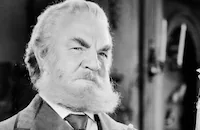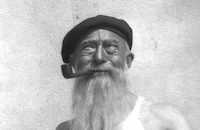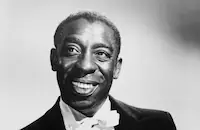Cabin in the Cotton

Brief Synopsis
Cast & Crew
Michael Curtiz
Richard Barthelmess
Dorothy Jordan
Bette Davis
Hardie Albright
David Landau
Film Details
Technical Specs

Synopsis
After Southern tenant farmer Tom Blake dies, Lane Norwood, the owner of the cotton plantation, puts Tom's son Marvin through school, later hiring him to work in his store. The other sharecroppers suspect that Marvin is now on the side of the owners, but Marvin is torn between his loyalty to his family and his gratitude to Norwood. He is also attracted to both Betty Wright, the daughter of a sharecropper, and Madge, Norwood's daughter. Marvin learns that the farmers are stealing cotton from Norwood, but as he understands how hard their life is, he says nothing to his boss, who has taken Marvin into his own house to live. When a tenant shoots a planter, Marvin and Norwood join the hunt for the killer. Marvin is sickened by the lynching that follows. Burdened by their debts, the tenants burn down Norwood's store. Marvin reveals that he has kept a duplicate set of books which will prevent Norwood from being ruined, but the tenants beg Marvin to destroy them so they can start again without debts. Marvin refuses to give the books to the sharecroppers until one of them explains that Norwood's high interest rates were responsible for the overwork that killed Marvin's father. Caught in the middle, Marvin calls a meeting between the planters and the farmers and proposes a cooperative scheme for farming that will be fairer to the tenants without asking the planters to assume all the financial risk. When some of the planters refuse, Marvin threatens to expose the truth about the lynching. Finally everyone signs the trial contract, and Marvin looks forward to better times.

Director

Michael Curtiz
Cast

Richard Barthelmess

Dorothy Jordan

Bette Davis

Hardie Albright

David Landau

Berton Churchill

Dorothy Peterson
Russell Simpson

Tully Marshall

Henry B. Walthall

Edmund Breese
John Marston
Erville Alderson
William Lemaire

Clarence Muse
Walter Percival
Ezzy Daniels

Harry Cording
Virginia Hammond
Florine Mckinney
Crew
Al Alborn
George Amy
Leo F. Forbstein
Kenneth Green
Professor Paul Green
Esdras Hartley
William Keighley
Barney Mcgill
Orry-kelly
Earl Sitar
William Walling Jr.
William Whitley

Film Details
Technical Specs

Articles
Cabin in the Cotton
Bette Davis had begun her film career the previous year at Universal, but after a few pallid roles, the studio had dropped her. Warner Brothers offered her a contract, but at first she fared no better there, still playing colorless ingenues. Then Warner's production chief Darryl Zanuck cast her as Madge, over the objections of director Michael Curtiz. The volatile Hungarian-born Curtiz was known to have a sharp eye for new talent, but that instinct failed him when he encountered Davis. As she seduced Barthelmess on-camera, Davis could hear Curtiz muttering behind the camera, "God-damned-nothing-no-good-sexless-son-of-a-bitch!" On her close-ups, Curtiz made her play her love scenes to the camera, without Barthelmess to react to her lovemaking.
Barthelmess recognized Bette's talent, but was intimidated by it. Years later, he would say, "There was a lot of passion in her, and it was impossible not to sense....one got the sense of a lot of feeling dammed up in her, a lot of electricity that had not yet found its outlet. In a way it was rather disconcerting - yes, I admit it, frightening." Barthelmess may have been impressed, but as an actor, he didn't give much back. His acting technique, according to Bette, consisted of doing very little in the long shots and medium shots, and only acting full-out in the close-ups. That way, it was necessary to use mostly his close-ups in the film. Nevertheless, it was clear that Davis was stealing the film, and the ad campaign reflected that: "Meet a new kind of temptress! Flaming as Southern Suns, Bewitching as Plantation Moons..." Cabin in the Cotton would be one of Barthelmess' final films as a star, although he would continue to appear in character roles for another decade.
When Cabin in the Cotton was released, it was "that flashy, luminous newcomer Bette Davis" who took the acting honors, according to the critics. Regina Crewe, in the New York American, raved "the girl is superb." Richard Watts, Jr., of the New York Herald Tribune added, "Miss Davis shows a surprising vivacity as the seductive rich girl." And Variety said that Davis' "rising popularity is the film's best chance for business." Director John Cromwell also took notice. It was Davis' performance in Cabin in the Cotton that convinced him to cast her as the slutty Mildred in Of Human Bondage (1934). And that film would assure her reputation as one of the best actresses of her generation.
Producer: Jack L. Warner
Director: Michael Curtiz
Screenplay: Paul Green, based on the novel by Harry Harrison Kroll
Editor: George Amy
Cinematography: Barney McGill
Principal Cast: Richard Barthelmess (Marvin), Bette Davis (Madge), Dorothy Jordan (Betty), Henry B. Walthall (Old Eph), Berton Churchill (Lane Norwood), Hardie Albright (Roland Neal), David Landau (Tom Blake), Dorothy Peterson (Lily Blake).
BW-78m.
by Margarita Landazuri

Cabin in the Cotton
Quotes
I'd like to kiss you, but I just washed my hair.- Madge
Your head is full o' plans, isn't it, darlin', full o' plans.- Madge
Trivia
Notes
Actor Erville Alderson's surname is spelled "Anderson" in the onscreen credits. According to Daily Variety, this film was one of three permitted to be shown in the USSR because the government approved of its social content. Paul Green was a professor at the University of North Carolina. According to Bette Davis' autobiography, Michael Curtiz did not want her in the film, and used explicit language in describing her as "...nothing, no-good, sexless...." A line that Davis uttered in this film, "I'd love to kiss ya, but I just washed my hair" became one of her signature lines.















